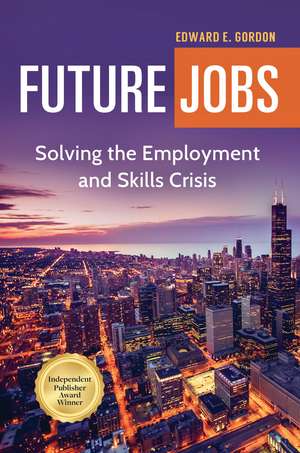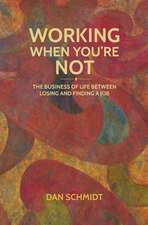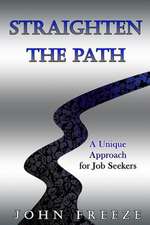Future Jobs: Solving the Employment and Skills Crisis
Autor Edward E. Gordon Cuvânt înainte de Kevin Hollenbecken Limba Engleză Paperback – 4 mar 2018 – vârsta până la 17 ani
| Toate formatele și edițiile | Preț | Express |
|---|---|---|
| Paperback (1) | 180.95 lei 43-57 zile | |
| Bloomsbury Publishing – 4 mar 2018 | 180.95 lei 43-57 zile | |
| Hardback (1) | 288.23 lei 43-57 zile | |
| Bloomsbury Publishing – 25 aug 2013 | 288.23 lei 43-57 zile |
Preț: 180.95 lei
Preț vechi: 208.95 lei
-13% Nou
Puncte Express: 271
Preț estimativ în valută:
34.66€ • 35.70$ • 29.03£
34.66€ • 35.70$ • 29.03£
Carte tipărită la comandă
Livrare economică 24 februarie-10 martie
Preluare comenzi: 021 569.72.76
Specificații
ISBN-13: 9781440863653
ISBN-10: 1440863652
Pagini: 232
Dimensiuni: 156 x 235 x 13 mm
Greutate: 0.45 kg
Editura: Bloomsbury Publishing
Colecția Praeger
Locul publicării:New York, United States
ISBN-10: 1440863652
Pagini: 232
Dimensiuni: 156 x 235 x 13 mm
Greutate: 0.45 kg
Editura: Bloomsbury Publishing
Colecția Praeger
Locul publicării:New York, United States
Caracteristici
Provides information critical to a wide audience: businesses seeking to fill vacant jobs, community organizations and governments trying to attract new enterprises and retain current businesses, educators preparing students for careers, and students and parents concerned about job and career options
Notă biografică
Edward E. Gordon, PhD, is president of Imperial Consulting Corporation in Chicago, IL.
Cuprins
Foreword by Kevin HollenbeckAcknowledgmentsIntroduction: The Jobs RevolutionPart I: Jobs and Careers1 The "Good Jobs"2 Career versus Jobs: What Are the Issues?Part II: The Roadblocks3 The Widening Job-Skills Gap4 Career Culture-Business Culture Fantasies5 The "Big Lie"Part III: The Breakthroughs6 Regional Talent Innovation Networks (RETAINs)7 Future Jobs at the GrassrootsPart IV: The Future8 A New Business Agenda9 Government Realignment10 Falling Off the Talent CliffAppendix I: Career Analysis ScorecardAppendix II: Training Return-on-Investment: Human Capital ROI Worksheet ExampleAppendix III: Comprehensive Career AcademiesNotesIndex
Recenzii
Edward Gordon brings a good deal of data, insight, and clarity to a hotly debated topic: the skills required by the workers of the Postindustrial Age. . . Future Jobs maps out the dimensions of an underappreciated crisis confronting not only the United States but also many of the world's developed and emerging economies: the rapidly growing shortage of adults who possess the basic skills to qualify for high growth, information-intensive jobs of what the author calls the age of 'cyber-mental work.' . . . Future Jobs makes a convincing case that there is an urgent need to provide tens of millions of U.S. workers-both the unemplyed and employed-with advanced cognitive skills. . . He concludes that the only effective means by which America can timely address its workplace skills crisis is through local initiatives: employers collaborating with educators, government, and civic leadership to provide millions of individuals with the specific skills required to perform the jobs of our Cyber-Mental Age.
Gordon, a business consultant, examines how the United States can reduce workforce skills shortages by offering comprehensive regional solutions. . . . Recommended.
With wisdom, integrity, compassion, and determination, Dr. Gordon identifies and analyzes the issues, and proposes with demonstrably workable solutions. Gordon concludes, 'As an optimist, I believe that American society's greater flexibility and dynamism will prevail as in past eras. My hope is that Future Jobs will inspire people in many walks of life to take a proactive role in shaping that new jobs and talent era.'
Gordon, a business consultant, examines how the United States can reduce workforce skills shortages by offering comprehensive regional solutions. . . . Recommended.
With wisdom, integrity, compassion, and determination, Dr. Gordon identifies and analyzes the issues, and proposes with demonstrably workable solutions. Gordon concludes, 'As an optimist, I believe that American society's greater flexibility and dynamism will prevail as in past eras. My hope is that Future Jobs will inspire people in many walks of life to take a proactive role in shaping that new jobs and talent era.'













